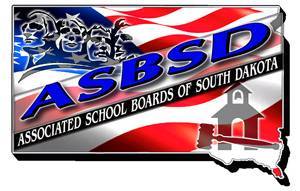This is the second installment in a series examining South Dakota’s Open Meeting Law by Director of Policy and Legal Services Gerry Kaufman and Leadership Development Director Dr. Randall Royer. This article will appear in the October edition of The Bulletin scheduled to be published on Wednesday, Oct. 9.
SDCL 1-25-1.1 requires, and the Open Meetings Commission has held, that all public schools must post a notice of a school board meeting with the date, time, and location of the meeting along with a proposed agenda at least 24-hours in advance of the meeting.
The notice and agenda must be posted at the building where the principal office of the school board is located (i.e., where school board meetings are regularly held). If the school has a website, the meeting notice and proposed agenda must also be posted on the website. Posting the notice and proposed agenda only on the website does not meet the statutory requirements for posting.
For all special meetings, and rescheduled meetings, the law requires that the meeting notice and the proposed agenda be delivered either in person, by mail, by email, or by telephone, to members of the local news media who have requested the notice and proposed agenda.
The 24-hour rule applies to special and rescheduled meetings “to the extent that circumstances permit.” When in doubt about posting a notice of meeting and proposed agenda, contact your school attorney.
So what is a Board’s member role in posting?
The chair of the board, working with the superintendent, develops the actual agenda, but usually, more the other way around. Any board member can ask for items to be placed on the agenda before it is published, but they should do so through the board chair. Follow the chain of command.
An example agenda model follows:
- Call to order
- Pledge of Allegiance
- Roll call, quorum established.
- Open forum
- Approval of Agenda
- Recognition of students/staff/celebrate success
- Identify unfinished business items
- Consent agenda
- New business—action items
- Information items
- Committee and superintendent reports
- Executive Session, if required
Certainly, variations exist and are workable.
The format listed above works for many reasons; with the Open Forum early in the meeting, and somewhat isolated from action items, the public doesn’t have to wait an hour or more to speak (or vent), which could cause them to build up more steam.
Remember this is a meeting of the Board in public; it’s not a public meeting. There is a difference!
The Chair should control all aspects of the meeting, including Open Forum. Isolate Open Forum from board action so the board can make well-informed decisions without undue emotional influence. Certainly as best as you can, celebrate student achievements and recognize accomplishments by your staff at every meeting. This is part of why you are on the board.
Care should be taken when something controversial quickly materializes and the public, collaborating with a board member, wants it added to the meeting, and acted upon by the board.
The better solution for a board would be to listen to the issue during open forum, ask to gather more information and background, and promise to report at the next regular board meeting, and act then if necessary or warranted.
Certainly, as most school boards meet but once a month, items that did not make it on the proposed agenda, that need to be acted upon and not postponed for another month, could be added at the regular meeting at the time when the agenda is approved by the school board. There are to be no additions to the agenda after the agenda has been approved.
Sometimes the agenda may need to be amended at the actual meeting, but this should be done with care. Do not purposely avoid putting an item on the agenda, only to add it as an agenda amendment, for the sole purpose of avoiding large crowds, controversy or media attention.
The Open Meetings Commission has consistently written that there is no “good faith exception” to the open meetings laws. Strict compliance is required.
There are two potential consequences for violating SDCL 1-25-1.1:
- Violating SDCL 1-25-1.1 is a criminal offense (Class 2 misdemeanor) and the penalty can be up to 30 days in jail and/or up to a $500 fine. A state’s attorney decides whether to file a criminal complaint and conceivably could file a complaint against each member of the school board.
- If the State’s Attorney chose to forward the complaint to the Open Meetings Commission instead of filing a criminal complaint, and the Commission found that the school board violated the statute, the school board would receive a public reprimand from the Commission. However, if the Open Meetings Commission did reprimand a school board, the State’s Attorney or Attorney General cannot use that reprimand as the basis for a subsequent criminal complaint for the same violation.
Follow the rules to the letter of the law and keep the meeting moving.
